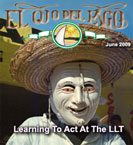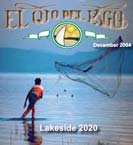
My sister was a twenty-two year-old South African freedom fighter. On July 9th, 1964, in the dead of winter, she and her husband fled Johannesburg on a motorbike. During the height of Apartheid, with Nelson Mandela in prison, Hilary and Ronnie belonged to the African Resistance Movement (ARM) whose aim was not to be terrorists or to hurt anyone, but to disrupt the economy, demolish racism and have an egalitarian society.
One night, a fellow activist warned them that the ‘Special Branch’ had their names; if caught, imprisonment could be long and mean solitary. Hilary kept a small pre-packed canvas rucksack ready for just such a time when they would need to flee: map of South Africa, passports, degree certificates, post-office savings book, some jewelry and warm clothing. At daybreak, with snow on the ground and huddled in dufflecoats, without helmets, they left South Africa forever. In their rush, the package of sandwiches she’d prepared was forgotten. Thus began their nearly 3,000 mile journey through Africa, from Johannesburg to Dar es Salaam, helped to safety by fortune and many good souls along the way.
Soon Ronnie’s hands were so cold, that Hilary stuffed his leather gloves with their degree certificates as an extra layer of protection. They drove 225 miles to Bechuanaland, (now Botswana, but at that time under British rule), where the border-guard, who, an hour later was warned to watch for two dangerous, communist saboteurs on a motorbike, let them through, believing them to be students going bird-watching.
In Lobatsi they were granted asylum as political refugees, and they headed for their first safe-house where they learned that they were front page news in the South African press. A school teacher, returning home, offered to take them in his 4-wheel-drive jeep to Francistown, 315 miles further north. He said the roads north were impassable for a motorbike, so they gave it away. The teacher kindly gave them food and lodging in his empty school, the pupils all gone for their winter vacation. But then, after vigilantes bombed a nearby ANC refugee camp, the British Resident Commissioner told them the bomb had been meant for them and, though no one had been hurt, they must leave immediately. He arranged a ride in a tiny Piper plane that would fly them to the Caprivi Strip, that unique place where Bechuanaland, Southern Rhodesia and Northern Rhodesia all meet. However, the pilot, knowing that his passengers were fugitives with political views he didn’t support, gave them the ride from hell. Swooping and diving, skimming the treetops, he laughed heartily, explaining he wanted them to see the wild life in the Okavango Swamps beneath them. The plane landed bumpily on the dirt airstrip at Kasane, discharging them sick and frightened beside the Zambezi River. They had gone a further 741 miles.
The District Commissioner, drunk and bush happy, appeared more likely to shoot them than issue them with a permit to cross the river to Northern Rhodesia, so they sat under a tree, in the sweltering heat watching the elephants strolling by, wondering what to do next. A truck driver agreed to take them across on the pontoon, where they hunkered among the sacks of vegetables, hidden from view.
Then followed a long night hitching a 39 mile ride on another truck to Livingstone. Hitching onwards proved fruitless, but an official agreed to let them ride in the guard’s van of a goods train where they shared a tiny uncomfortable bench for 292 miles to Lusaka. Hungry and exhausted, they turned themselves in to the police. They waited hours, slumped in hard wooden chairs, seriously sleep deprived, eventually finding out that Prime Minister Kenneth Kaunda, sympathetic to South African dissidents, was personally sending his aid, Chief Fresh Chitimukulu to drive them to safety.
Chief Chitimukulu settled them in a posh hotel, all expenses paid, where they were able to wash for the first time in 24 hours, eat in the restaurant and sleep deeply. At 6 am the next day, traveling at high speeds over unmade roads, the Chief drove, almost non-stop, 903 miles to the border with Tanganyika, where he dropped them off. They had been forced to take a long detour because of ‘trouble’ in the east. He accepted no payment, besides they had no money. They hugged and Ronnie gifted him his dufflecoat. “Go well. God go with you,” the Chief said. “Stay well, Chief. Thank you,” they answered. Dark came early in Central Africa as they stumbled across rocky, dangerous ground and through the border fence towards the distant lights of Mbeya.
That night they spent in a police cell, sleeping fitfully, head-to-toe in a narrow camp-bed. They found themselves prisoners, but not locked in. A stranger took them for a meal, then returned them to wait, sitting on a wall in plain sight of snow-topped Kilimanjaro. Once verified as political refugees, they were released. With nowhere to go, they were directed to another refugee safe-house. But they had to move on. The Catholic priest from the mission school befriended them and lent them ten pounds for bus-fare to Dar es Salaam on the east coast of Tanganyika. Unable to repay him, he was just one more person immortalized in my sister’s memoir, “A Song Remembers When” which was published in South Africa forty-two years later.
All day, the bus, crowded with passengers, goats, chickens and crying children, drove the 516 miles through the mountains to Dar where they registered again for political asylum and received a small stipend and somewhere to stay. Here they were not alone among the many political refugees.
One day they were summoned to meet with Oliver Tambo, leader of the African National Congress in exile. The ANC would become the party in power in South Africa when Apartheid ended and Nelson Mandela would be released from twenty-six years in prison, to become President. Over a strange meeting, Tambo eating chocolate mousse and Hilary and Ronnie eating ice-creams, they recounted their story and explained their politics. The interrogation ended and Tambo seemed satisfied.
In September, Immigration told them that Tanganyika, now renamed Tanzania, would no longer ‘offer them open house’. With a week to leave, frantic telegrams flowed between our parents in Johannesburg and a lawyer friend in London who arranged their airfare, just in time. On September 9th, two months to the day since they fled South Africa, that friend and I were there to meet them at Heathrow airport. Their ordeal was over. It would take years for Hilary and Ronnie to adjust to their new life in London, but looking back, they were forever grateful to the many strangers who had helped them to safety.
- A HARROWING JOURNEY – a true story - January 30, 2023
- A Brush With Death - July 31, 2022
- A Mexican Village Wedding - April 28, 2022









